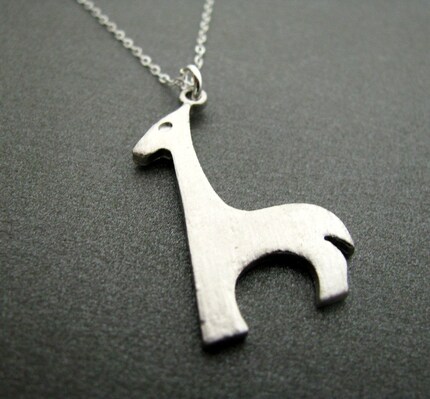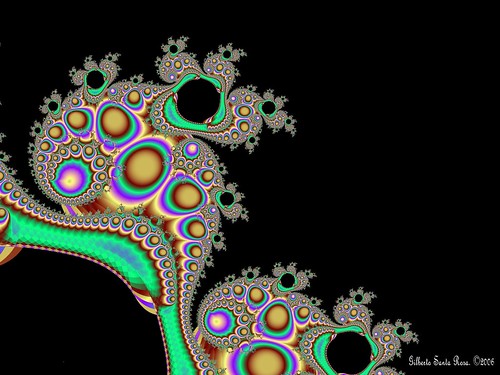This piece is for my creative nonfiction workshop.
Former NC Senator Elizabeth “Liddy” Dole, 73, drowned yesterday in a mud bath at a high-scale salon in Washington, DC. The Red Door Salon, attended by many members of the House and Senate, provides many services such as facials, massages and aromatherapy which are covered under the health insurance afforded to member of Congress. Dole was a known opponent to health care reform and the recipient of a failing grade from the American Public Health Association indicating an anti-public health voting record. Had she survived and chosen to sue the establishment her reward may have been affected by her own yes-vote on limiting medical liability lawsuits to $250,000.
Born Mary Elizabeth Hanford in Salisbury, North Carolina, Dole’s origins became a source of contention in her bid for the NC senate seat vacated by the late Jesse Helms. Opponents pointed to her permanent residence, a condo in the infamous Watergate Hotel, which she and her husband, former senator and 1996 presidential hopeful Bob Dole, have owned for nearly 40 years. Her official residence was shifted to her mother’s home in Salisbury in order to seek election. After a comfortable childhood replete with niceties such as dance lessons and a beach house, Dole graduated high school having been voted as most likely to succeed. She then attended the honorary-Ivy League Duke University, as a brother before her did, and majored in political science, though her mother had hoped she would pursue economics. A member of the Delta Delta Delta sorority, she was nominated to the May court and was titled queen. She was also elected student body president and graduated with honors as a member of Phi Beta Kappa, preparing her for post-graduate work at the blue-blood bathed Oxford and also a master's degree in education from Harvard University, no stranger to privilege and political capital of all stripes.
In 1962 Dole began working toward a degree in law at Harvard, one of only 24 women in a class of 550. Her mother was deeply disappointed that Elizabeth pursued her career over getting married and starting a family, despite the fact that her daughter was not seriously dating anyone at the time. Instead of wedding a phantom husband and building an empty house on the lot next to her family home in Salisbury, North Carolina, Dole graduated in 1965 and moved to Washington, beginning her political career in the Department of Health, Education and Welfare under President Johnson. A registered Democrat, while Elizabeth was working for Johnson’s Great Society program, her future husband was voting against it. One must surmise from her later record that the future Elizabeth Dole--staunch conservative and loyal Republican--would have voted against the program as well.
Contradictions and change thus characterized Dole’s political life. After representing poor clients at a public interest law firm in 1967, Dole jettisoned her needy clients as her resume and connections took her to work officially for Johnson in the White House in the Office of Consumer Affairs. When Nixon came into office, the savvy (though not particularly loyal) Elizabeth switched her party affiliation to Independent and remained in the White House, one of a minority of staffers who was allowed to stay after the Republican president took over. The switch enamored her to Nixon and she assumed the position of executive director of the President's Committee for Consumer Interests in what Dole has categorized as the “heyday of consumerism”. Her experience here no doubt led many years later to the rebranding of her husband through dignified endorsements of brand names such as Pepsi and Viagra. Nixon then appointed her to the Federal Trade Commission for a seven-year term. After years of tutelage under Nixon and forgoing the young woman she was when she worked for Johnson, Dole switched parties again, this time to Republican, in 1975, shortly before she married.
Routes of power and the privilege of access brought Elizabeth and Bob Dole together within the insular circles of Washington politics. It is fitting that they were reacquainted at the party of Clement Stone, an insurance mogul and millionaire. Dole was reluctant to pursue Elizabeth romantically due to a thirteen-year age difference, but eventually he asked her to a date at the restaurant of Watergate Hotel, the site of this Washington power couple’s future home and the symbol of corruption that would color American politics for years to come. In a strange twist of fate, the apartment next to theirs would eventually be occupied by another symbol of political corruption, Monica Lewinsky.
Elizabeth, once so ambitious, set aside her own political career to campaign for her husband’s Vice Presidential run on the unsuccessful 1976 Republican ticket with Gerald Ford against Jimmy Carter and Walter Mondale. 1979 she left the FTC for good as she campaigned for her husband again, in another unsuccessful run, this time for president, in 1980.
Reagan’s victory led to renewed ambition and success for Elizabeth Dole, first as director of the White House Office of Public Liaison from 1981 to 1983, and as United States Secretary of Transportation from 1983 to 1987. She broke glass ceilings as the first female Secretary of Transportation and as the first female head of a military branch as the Coast Guard fell under the jurisdiction of the DOT. During this most fruitful political period, Dole began to question the centrality of her career to her life. She had no children though she was stepmother to Bob’s daughter from his first marriage. She was a political anomaly, a conservative female politician who had no children and was known as ambitious and successful. On the precipice of true success, Elizabeth Dole doubted her ambition and stepped back from politics while she had what she has characterized as “a spiritual awakening.” On the campaign trail with her husband in 1996, she could often be seen carrying a turquoise, leather-bound bible with her, winning the minds of conservatives and the hearts of Evangelicals, voters that would stand by her in later pursuits. Though she returned to politics under yet another president as George H. W. Bush’s Secretary of Labor, she left to become President of the Red Cross in 1991. She resigned in 1999 to pursue her own unsuccessful Presidential run. She found victory in the 2001 NC Senate race, filling the seat of the notorious and controversial Senator Jesse Helms after his retirement, like so much milk to his fiery moonshine.
Loyal at last, she voted along party lines, and was often counted on to co-sponsor bills rather than write her own. In fact, out of the 52 bills she authored, 46 never made it out of committee and only two passed at all. Her constituents often remarked on how little she was in North Carolina, in 2006 spending a paltry 13 days in her “home” state, no doubt preferring to stay in her luxury condo at the Watergate than in the confines of her Mother’s home. She was also voted one of the least effective senators, 93rd out of 100.
Despite, or perhaps because of her unremarkable senatorial record, Dole was elected chair of the National Republican Senatorial Committee. Under her watch, Republicans lost the majority in the Senate, and were out fund-raised and out recruited by the Democratic chair. As a result, Senator John Ensign of Nevada soon replaced her.
In 2008, Dole lost her seat to Kay Hagan, a state senator from Greensboro, North Carolina. The convergence of many factors led to this underdog upset of the incumbent Dole including aggressive campaigning in the state by President Obama, galvanizing the Democratic base, and the unequaled spending of Political action committees for Hagan. Despite her pledge to run a positive campaign, Dole appeared desperate to change the momentum of the campaign, and authorized a series of extremely controversial commercials that painted Hagan, a Presbyterian Elder and Sunday school teacher, as an atheist. The ads prominently featured a woman’s voice saying “There is no God”, a voice that viewers were to surmise was Hagan’s. The commercials were largely considered the worst kind of political maneuvering, and routinely criticized as pure mud slinging. An unfortunate turn of phrase, considering. Atheists and agnostics poured money into Hagan’s campaign, exacerbating the worsening situation for Dole. She lost by an 8 point margin, the largest margin of defeat in the last thirty years of NC Senate races. The commercials are her most public failure, in a life that was marked by a series of unsuccessful campaigns, a husband that once backed a rival opponent, and an unwillingness to embrace true greatness whenever given the chance. Her undoing reflects the largest theme of her life; the compromise of self in the pursuit of power. Elizabeth Dole, known as Liddy by her friends but not allowed to be called that by her peers or her constituents; known as a Democrat then an Independent then a Republican. Elizabeth Dole, once a sure bet for the first female president, became a victim of her own inability to make a decision, to decide what was right, and stick with it. Dole’s unfortunate legacy will undoubtedly be tied to the method of her passing, an irony that will be immortalized on late night television, not unlike her former neighbor.
She is survived by her husband, Bob Dole, and stepdaughter Robin.












 twice and in altogether separate incidents I have been disappointed by two people I love.
twice and in altogether separate incidents I have been disappointed by two people I love.